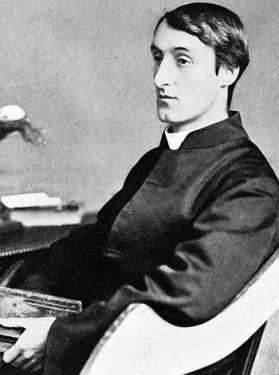Fifth in a series
The late Father Andrew Greeley frequently expressed in print his view that beauty can draw us toward God. It can act like a sacrament revealing God to us and drawing us closer to the Infinite Beauty who God is. I never disagreed with Andy’s insight but I don’t think I ever gave it as much thought as I should have. Reading N.T. Wright’s Broken Signposts: How Christianity Makes Sense of the World (New York: HarperOne, 2020, pp.198, $27.90) has moved me to appreciate Andy’s insight more than I had previously.

Beauty is one of the seven signposts that Wright considers broken, though individuals wish to make beauty a major presence in their lives. Cultures also wish to both embody and present beauty. Wright writes the following:
“We are all of us hardwired for beauty, searching for a deeper and richer meaning in a world that sometimes seems to overflow with delight but at other times feels dreadful and cold. Beauty — the haunting sense of loveliness, the transient yet utterly powerful stab of something like love but something more and different as well — is a pointer to the strange, gently demanding presence of the living God in the midst of his world.” (pp.92-93)
Probably since the time that I was a college student I fell in love with both legitimate theatre and movies. There were plays and films that I just had to see though I probably could not have articulated very clearly when I was in college why I “had to see” them. Reflecting on both Andrew Greeley’s comments about beauty and Wright’s insights into beauty, I now realize what I was searching to find and incorporate into my life was more and more beauty.
Philosophers talk about what they call the five transcendentals, which they identify as one, being, good, true, and beauty. These five characteristics are found in every being that God creates. Every reality that God creates is one, true, good, and beautiful. God cannot create a being that does not resemble God. So God cannot create evil. I do not find tarantulas or cockroaches especially beautiful but I imagine someone who has studied tarantulas and cockroaches could point out how they imitate the beauty of God even though most people may not find the beauty of these creatures obvious.
While I was thinking about Wright’s insights into beauty, the beautiful poem, “God’s Grandeur” by Father Gerard Manley Hopkins, S.J. came into my mind. The following is Hopkins’ poem:
“The world is charged with the grandeur of God.
It will flame out, like shining from shook foil;
It gathers to a greatness like the ooze of oil
Crushed. Why then do not men reck his rod?
Generations have trod, have trod, have trod;
And all is seared with trade; bleared, smeared with toil;
And wears man’s smudge and shares man’s smell; the soil
Is bare now, nor can foot feel, being shod.
And for all this, nature is never spent;
There lives the deepest freshness deep down things;
And though the last lights off the black West went
Oh, morning, at the brown brink eastward, springs —
Because the Holy Ghost over the bent
World broods with warm beast and with ah! bright wings.”
I think Hopkins’ beautiful poem is saying something very similar to what Wright is saying about the vision of beauty presented in St. John’s gospel. After commenting on the lack of beauty in the contemporary world, on the fact that the signpost of beauty seems broken in our contemporary experience, Wright, proclaiming that St. John presents a vision of beauty that is almost breathtaking, writes the following:
“Yet into this brokenness comes a God who seems to care deeply about beauty, a God who, according to the bible created the heavens and the earth to tell of his glory — not because he needed us to admire that glory, but because the glory was a true outflowing of his own generous love. What’s more, this God dares to whisper to us, even in the midst of our fractured world, that we are created in His own image and that this God-reflecting vocation can be and is being restored.”(p. 94)
How is it being restored? Of course, it is being restored by Jesus’ death and resurrection. But it is also being restored by our participation in God’s life, by the presence of the Risen Lord’s life within us, and by his Spirit’s life within us. We have been anointed and commissioned as ambassadors of Christ. Our dreams, desires, and hopes should move us to see the beauty of God’s presence in the world and to proclaim that beauty, especially by our lives. Suggestion: The next time we read John’s gospel, let’s allow the beauty of John’s vision to touch us deeply.
Father Lauder is a philosophy professor at St. John’s University, Jamaica. He presents two 15-minute talks from his lecture series on the Catholic Novel, 10:30 a.m. Monday through Friday on NET-TV.
